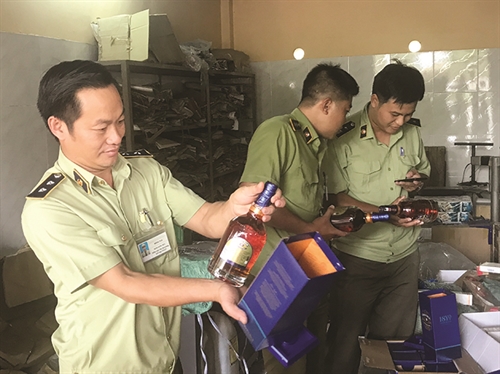Domestically produced and imported liquor and tobacco products that are subject to excise tax must be affixed with e-stamps.
 |
| Market surveillance officers are inspecting imported liquor products__Photo: Internet |
As defined in the draft circular on printing, issuance, management and use of e-stamps recently released by the Ministry of Finance (MOF) for public opinion, e-stamp means having signs recognizable to the naked eye and containing e-information and e-data activatable and searchable on e-portals of the General Department of Taxation and General Department of Customs.
The draft clearly states that each home-made or imported cigarette pack or liquor bottle must be affixed with an e-stamp. For cigarette packs and liquor bottles covered with cellophane films, e-stamps would be affixed to products before the outer cellophane layers are sealed. E-stamps would be affixed in such a way that once the cigarette packs or liquor bottles are opened, they would be torn and could not be reused.
Cigarette and liquor producers and importers would be allowed to conduct the e-stamping of their products by themselves but be held responsible therefor.
Particularly, e-stamps would not be required in the following cases: (i) liquor manually produced for sale to enterprises licensed for industrial production of liquor for further processing, (ii) liquor imported in the form of semi-finished products, (iii) liquor imported for carrying out procedures for grant of receipts of regulation conformity declarations or written certifications of conformity with food safety regulations, and (iv) tobacco products manufactured for export or overseas marketing or exhibition.- (VLLF)









